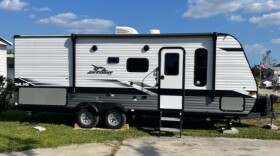Four sections around the Gulf Coast of Lee County have been reported with the presence of red tide — Buck Key by Blind Pass, Gasparilla Island State Park by Boca Grande Pass), Tarpon Bay Road Beach and Lighthouse Beach, both on Sanibel.
The Florida Department of Health in Lee County issued health alerts for the four areas in response to water samples taken on January 31 and February 1.
The FDOH/Lee County reported a caution level of red tide was found near Bonita Beach Park. A cautionary notice indicates low levels (>10,000-100,000 Karenia brevis cells per liter) of red tide detected in sampling. This is in response to water samples taken on February 1.
Residents and visitors are advised to take the following precautions:
- Look for informational signage posted at most beaches.
- Stay away from the water, and do not swim in waters with dead fish.
- Those with chronic respiratory problems should be especially cautious and stay away from this location as red tide can affect your breathing.
- Do not harvest or eat molluscan shellfish or distressed or dead fish from this location. If caught live and healthy, finfish are safe to eat as long as they are filleted and the guts are discarded. Rinse fillets with tap or bottled water.
- Wash your skin and clothing with soap and fresh water if you have had recent contact with red tide.
- Keep pets and livestock away and out of the water, sea foam and dead sea life. If your pet swims in waters with red tide, wash it as soon as possible.
- Residents living in beach areas are advised to close windows and run the air conditioner, making sure that the A/C filter is maintained according to manufacturer's specifications.
- If outdoors near an affected location, residents may choose to wear masks, especially if onshore winds are blowing.
The department encourages everyone to review these tips to stay safe while enjoying Florida’s beaches:
- In Florida, red tide is caused by a naturally occurring microscopic alga called Karenia brevis. Red tide algal blooms can change rapidly, staying in one place for months or just a few days or weeks.
- Symptoms from breathing red tide usually include coughing, sneezing and watery eyes. For most people, symptoms are temporary and typically go away when the person leaves the area. Wearing a particle filter mask may lessen the effects, and over-the-counter antihistamines decrease symptoms.
- People with chronic respiratory problems, like asthma, should avoid areas with active red tides. People with symptoms that persist should seek medical attention.
- Pet owners are advised that red tide poses a risk to animals brought to the beach. Red tide can affect animals if they drink affected water, lick their wet paws or fur, or breath marine aerosols.
- Residents sensitive to red tide and living in beach areas affected by blooms are advised to close windows and run the air conditioner (making sure that the AC filter is maintained according to the manufacturer’s specifications).
- Seafood, including shellfish, in restaurants, hotels, grocery stores, and markets is safe to eat. Cooked shellfish (oysters, clams, mussels) thoroughly to prevent exposure to Vibrio vulnificus. Shellfish should not be harvested or eaten from areas with active red tide.
Beachgoers are encouraged to check conditions before they go to the beach as conditions can change daily.
WGCU is your trusted source for news and information in Southwest Florida. We are a nonprofit public service, and your support is more critical than ever. Keep public media strong and donate now. Thank you.







